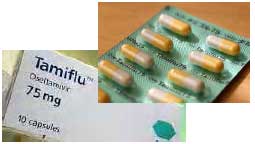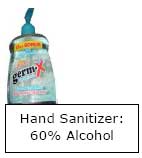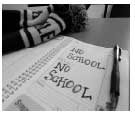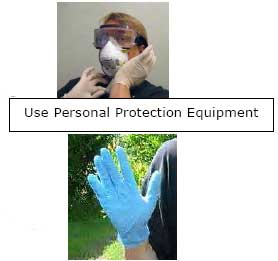Why This Is Important
There is no way to guarantee that you will not be infected if a pandemic occurs. However, there are ways you can minimize your risk of infection after a pandemic starts.
Minimizing Your Risk in a Pandemic
 1. The number one way to minimize your risk of infection is to shelter in place
1. The number one way to minimize your risk of infection is to shelter in place while the virus is circulating in your community. This means staying at home, or voluntary self-isolation. Doing this will require you to be fully prepared in almost all aspects of daily life. Realistically, few people are in this position. The next best thing is to prepare as much as possible, to minimize the times that you do leave your home.
 2. Wash your hands frequently.
2. Wash your hands frequently. Frequent hand washing is an important defense against the flu. Keep anti-bacterial liquid hand soap at every sink. Wash your hands several times each day. Make sure that you use proper hand washing technique. During a pandemic, this needs to become an obsession.
- rub hands together vigorously for 15-30 seconds
- cleanse all sides
- pay attention to nails, rings, watches
- ensure hands are completely dry when done

3. If you can't wash your hands, use hand sanitizer. You risk infection every time you touch a door knob, handlebar of a grocery cart, or ATM pad. Since it's not feasible to wash your hands every time you touch something that may carry the virus, carry hand sanitizer with you at all times.
NOTE: The alcohol content must be at least 60% to be effective for infection control.
 4. Exercise social distancing.
4. Exercise social distancing. The most effective way to prevent becoming infected with avian influenza is to avoid exposure to infected people. Unfortunately, it is not possible to determine who is infected and who is not. By the times symptoms appear, the person has already been contagious. A perfectly healthy looking person can spread the disease. You cannot tell by looking. Social distancing - deliberately limiting contact with people (especially large groups of people) - is a reasonable precaution to take in the event of a pandemic. Avoid close contact. OSHA recommends a six foot separation from others in the workplace.
- Try to work from home. A surprising variety of jobs can now be accomplished remotely, and employers will likely be willing--or even required--to accommodate telecommuting if a pandemic strikes.
- Even in the absence of a pandemic, staying home when sick is a good idea. More productivity is lost because sick workers come to work and infect others than if they had stayed home during their illness.

- Keep children home from school. Any parent knows that kids pick up all kinds of bugs at school. Pandemic flu is one bug that you certainly don't want your kids picking up. A very important way communities can prevent the spread of pandemic influenza will be to close schools and daycare centers very early on – preferably even before anyone at the school or in your town is infected. The earlier schools close, the better this technique will work. However, even if your schools do not close, YOU will want your children to be at home. Make plans now to be able to keep your kids home from school. Go to your school and pick up the forms you will have to file in order to home school your children legally. Gather the learning materials you will need to have on hand.

- Avoid public transportation. Buses, planes, subways, and trains all have large numbers of people in close quarters. Mass transportation is NOT recommended during the period of time that pandemic flu is actively being spread from person to person. This includes recreational transportation such as ships and long distance railways.
- Stay away from public events. During a pandemic, governments may cancel public events. If they don’t, stay away from public events anyway. Any large gathering of people in close proximity creates a high-risk situation. This includes elevators, waiting in lines, and sitting in a restaurant.
5. Wear a respirator. In a pandemic, it is important to protect yourself from inhalation of the virus if you're out in public. It is critical if you are in a high-risk job with known exposure.
 6. Protect your eyes.
6. Protect your eyes. The flu virus can be spread if contaminated droplets (from a sneeze, for example) enter the eyes. Wear splash-proof safety goggles. An example of this is the 3M Model 1621 safety goggle. Swim goggles can also be used.
7. Wear medical gloves. Gloves can prevent germs from getting on your hands, where they can be absorbed directly through open cuts or spread to other parts of your body. Latex or nitrile medical gloves or heavy-duty rubber gloves can be used to protect the hands. The gloves should be removed if torn or damaged, and hands should be thoroughly washed after removal of gloves.
8. Protect your pets. The avian influenza virus has spread to many species. Pets are in potential danger when they come into contact with infected birds or other animals, and these routes of infection will continue even if the virus mutates so that human-to-human transmission becomes the greatest threat. Avoid handling wild birds and try to prevent domestic animals (such as house cats) from coming into contact with birds.